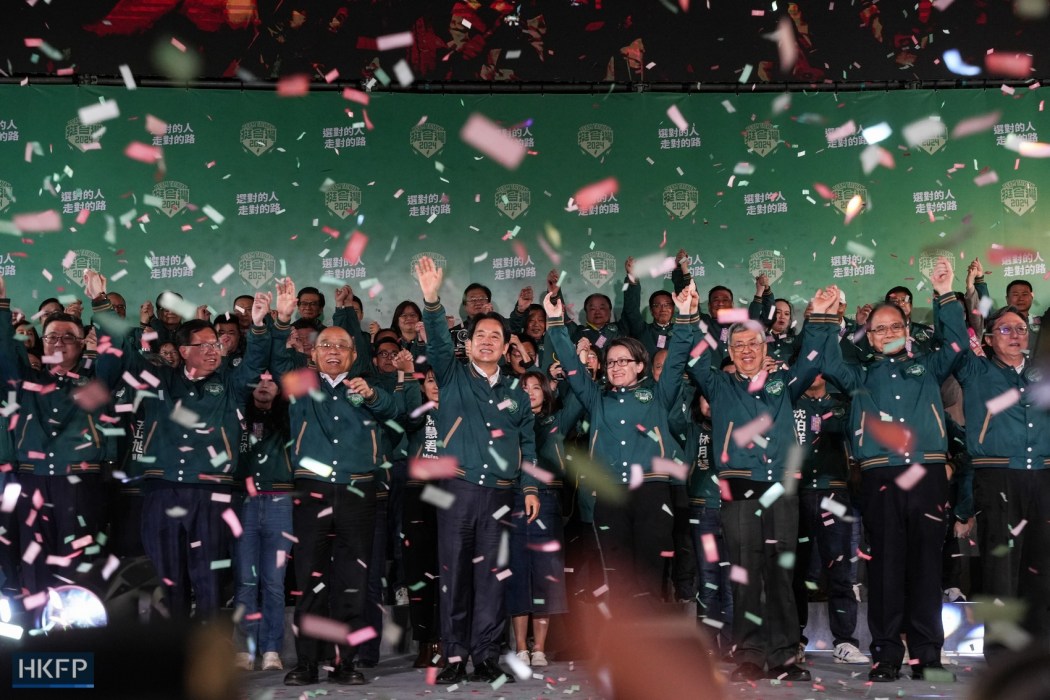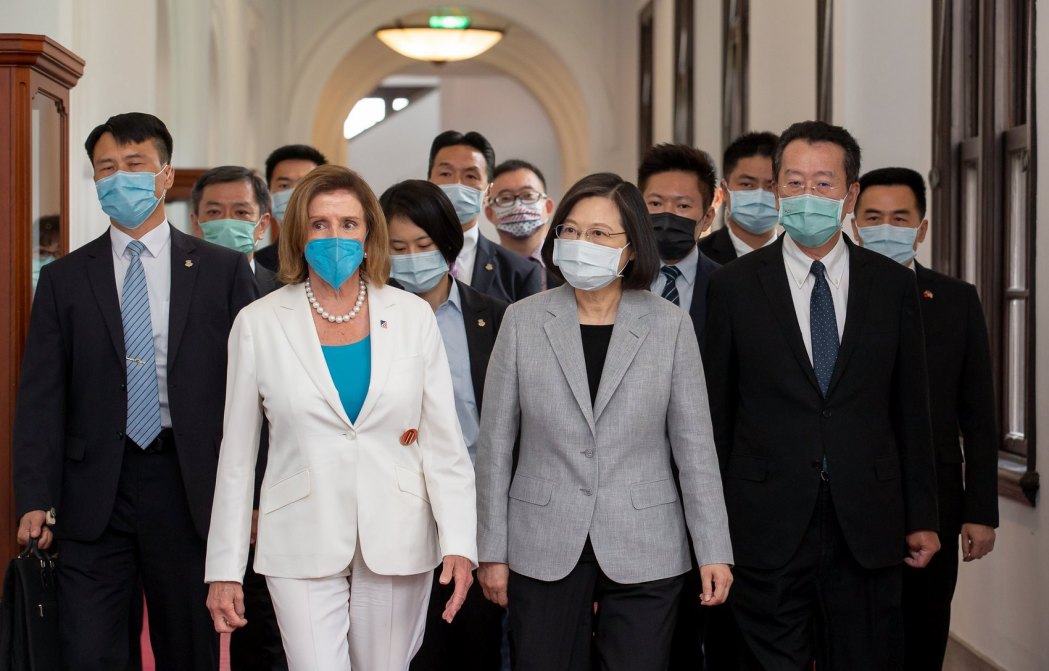Taipei, Taiwan
Taiwan is unlikely to experience a “full-scale invasion” by Beijing in the next few years, a defence expert has predicted a day after Democratic Progressive Party (DPP) candidate William Lai Ching-te was elected as the self-ruled island’s next president.

Speaking to reporters during a press conference in Taipei on Sunday morning, Arthur Ding of the Institute of International Relations at National Chengchi University said: “I don’t see the likelihood for full-scale invasion in the next few years.”
Ding pointed to domestic issues facing mainland China, which has seen a weaker than expected economic recovery following the lifting of Covid-related restrictions in late 2022.
However, Taiwan could expect to see more military incursions in the future, particularly if the US sends a delegation to attend Lai and running mate Hsiao Bi-khim’s inauguration in May, Ding said.
“My own guess is that the coercive approach will continue,” he added.

Chen Ming-chi, from the Institute for National Defense and Security Research (INDSR), echoed Ding’s predictions for cross-strait relations. “I think we are going to see much continuity on that front,” he said.
China’s Xi Jinping has made Taiwan’s unification with mainland China a central issue of his leadership – calling it “inevitable” just weeks ago – and he has not ruled out using force to take the island, which Beijing considers a breakaway province.
According to US intelligence agencies, the Chinese military has been told to be prepared for an invasion by 2027. Despite US President Joe Biden repeatedly saying that America would defend Taiwan from attack, it is uncertain whether Washington would directly involve itself in a conflict and many Taiwanese remain sceptical the US would come to the island’s defence.

Lai secured a historic third-term for the DPP in Saturday’s election, and has vowed to continue the foreign and domestic policies put forward by his predecessor, Tsai Ing-wen. Ties with mainland China soured under Tsai, who favoured securing the island’s position on the global stage and maintaining relations with the US.
Economic coercion, sanctions
In place of armed conflict, Ding said Taiwan could expect to experience economic coercion. Last month, industry groups warned that tariffs placed by Beijing on Taiwanese petrochemical products would have a negative impact on employment.
“The likelihood is very high that they will launch these kind of economic sanctions against Taiwan,” he said.
Wen-Ti Sung, a political scientist at the Australian National University, told HKFP that the DPP victory “would likely be met with Beijing’s rhetorical critique, targeted economic sanctions against select Taiwanese exports, and show of force. All intended to signal Beijing’s displeasure and ‘anchor’ the terms of subsequent interactions between Beijing and the potential Lai administration.”
He added that Taipei may deepen ties with the US, “though geopolitical tension in Taiwan Strait may persist, requiring ever more deft diplomacy.”

Asked during Sunday’s press conference whether Beijing may seek to shift its position on Taiwan after Saturday’s result – seen as a rebuke of China under Xi – Ding said: “The likelihood for Xi Jinping to change his mind is very low.”
Lai I-ching, president of The Prospect Foundation, agreed. “China will make everything difficult for William Lai to govern,” Lai said.
‘A lot of drama’
Taiwan’s next president will also experience challenges at home, the analysts said, particularly in the parliament, the 113-seat Legislative Yuan, where no party succeeded in winning a governing majority.
See also: Ruling DPP fails to retain legislative majority after winning presidential race
The INDSR’s Chen said that the DPP had failed to engage young voters, who he described as feeling “alienated” by politics, particularly during the Covid-19 pandemic.
“The anti-establishment sentiment is very strong… and the sitting party got punished, Chen said. “Lai Ching-te has to deal with this, it’s not going to be a smooth sail.”
The Taiwan People’s Party (TPP), which was established by former Taipei mayor Ko Wen-je in 2019, succeeded where the traditional parties failed: in engaging the island’s youth. Ko, who ran against Lai and the Kuomintang’s Hou Yu-ih for president, took 25 per cent of the vote, while his party gained eight seats in the Legislative Yuan.

“The TPP is going to play a key role in domestic politics down the road,” Chen said, later adding, “I highly doubt they will only be a one time phenomenon.”
Chen predicted “a lot of drama” in parliament as the parties tussle for power, but that ultimately there would be no “surprises.”
“The TPP is going to play a key role in domestic politics down the road… We will see a lot of drama, but I don’t think we will see a lot of policy change,” he said.
Fang-Yu Chen, an assistant professor of Political Science at Taiwan’s Soochow University, told HKFP that the DPP was in a weaker position without a legislative majority: “It will be very tough for Lai, especially for major policies like US arms sales. Two decades ago, the Chen Shui-bian administration had same situation and it was difficult for Chen.”
Additional reporting: Tom Grundy
Dateline:
Taipei, Taiwan
Support HKFP | Policies & Ethics | Error/typo? | Contact Us | Newsletter | Transparency & Annual Report | Apps
Help safeguard press freedom & keep HKFP free for all readers by supporting our team

LATEST FROM HKFP
HKFP has an impartial stance, transparent funding, and balanced coverage guided by an Ethics Code and Corrections Policy.
Support press freedom & help us surpass 1,000 monthly Patrons: 100% independent, governed by an ethics code & not-for-profit.










